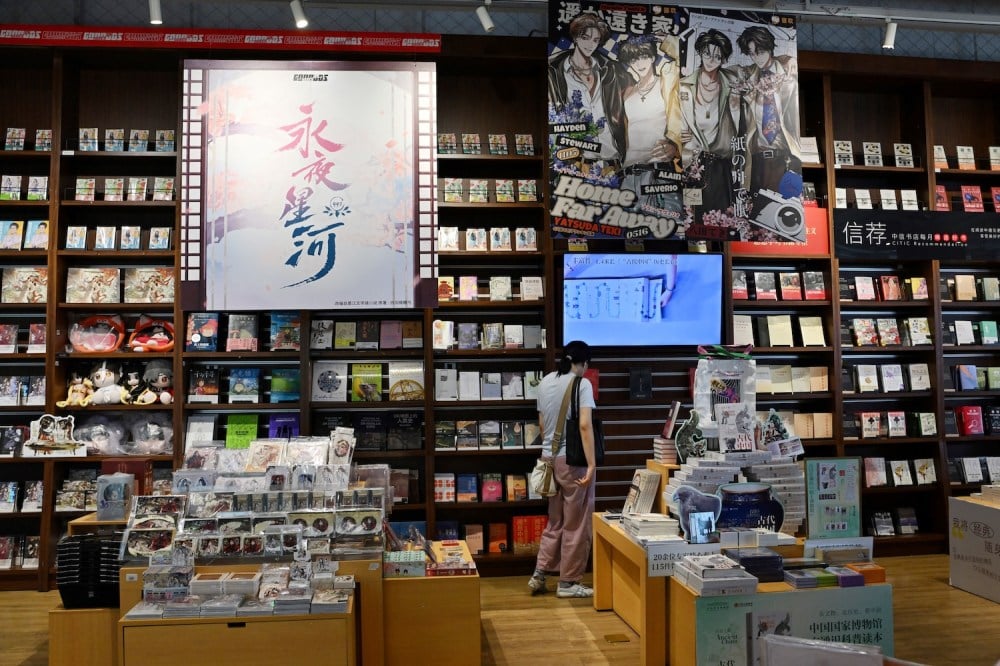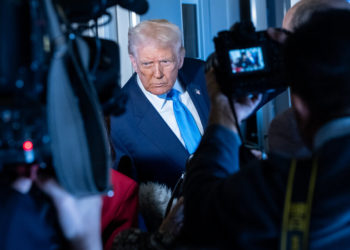Welcome to Foreign Policy’s China Brief.
I spent many years working inside Chinese media, both state-owned and private, and I find that many people outside the country misunderstand a key part of these institutions. So, this week, we’re taking a deep dive into censorship in China, focusing on formal publishing processes rather than social media—a topic that I’ll return to in a future column.
The Many Stages of Chinese Censorship
Reports of books, films, and even ideas being banned in China are common—and often inaccurate. Bans are often portrayed as ideological and organized, but the machinery of censorship is messy. Though it is a routine process, it’s also random and full of holes. So, how does Chinese censorship actually work?
There are certain topics—such as high-ranking officials and their families, the status of Taiwan, or the legitimacy of Chinese Communist Party (CCP) rule—that have long been off-limits in Chinese media. Most authors or journalists living in mainland China engage in self-censorship and avoid those topics outright.
Even exercising caution, it’s possible to brush up against red lines. While I lived in China, multiple sources told me about a 2009 incident in which staff at the Global Times were punished for a piece that described a paper factory as the largest in China and the second-largest in the world. This was controversial, because at the time, the largest paper factory in the world at was in Taiwan; the line had inadvertently suggested that Taiwan wasn’t part of China.
Sometimes, the red lines shift—and usually for the worse. In Xinjiang, for instance, between deadly riots in 2009 and a terrorist attack in 2014, it was still possible to publish pieces even in state media that mentioned prejudice against Uyghurs by China’s majority Han population. But by 2017, once the Chinese crackdown on Uyghur life was fully underway, mentions of Xinjiang became much more scrutinized.
However, most sensitive topics—such as the Cultural Revolution, corruption, or social inequality—occupy a gray area in which coverage is risky but still possible, so long as it steps carefully around CCP sensibilities.
Oftentimes, creators avoid covering these topics—even if it’s likely to make it through the censorship process—because having something removed is frustrating and sometimes financially ruinous. As my friend Mo Mo, a television writer, described it to me, “You can spend weeks working on something and then it dies, so then the next time you just write another boring series aimed at stay-at-home moms instead.”
Sometimes, research reveals that a topic is too painful to be touched. For instance, around 2009, I spoke with an author who later fled China in 2021. He had just finished months of research into child abuse in Chinese institutions, such as orphanages, and when I asked him about it, he sighed deeply.
“It’s very bad,” he said, “And so I can’t write about it. If it was only a little bad, I could write about it, but it’s so bad that it could never be published.”
Once there’s a draft of a piece, it is then subject to internal censorship by editors and publishers.
Newspapers and publishing houses do not officially employ “censors.” But because publishers bear a lot of the risk for overstepping, they often have staff whose job is to check on particularly sensitive stories. These are usually more senior people who are considered politically savvy or who have worked for institutions with higher official status—such as Xinhua, the national press agency.
In China, making censor-friendly changes to a piece is mostly a collaborative process between author and editor as they work out what they can say without getting in trouble. Some well-known editors are sought out for these skills. For foreign authors, this stage of the process can vary; cuts can be relatively painless or cause projects to be dropped entirely.
But the double role of editors as censors creates bigger problems. Chinese books are more poorly edited than in the West, not due to a lack of ability but because the editor’s prime concern is whether the writing will cause problems, not whether it’s good art. It’s not uncommon for an author’s first draft to be their final one, save for changes made for political reasons.
Chinese publishers and directors often acquire so-called web novels, a category of books self-published online. Other than basic checks for pornographic or political content, these novels receive very little initial censorship and often include topics not permitted in officially published material—notably, magic and the supernatural. They often require finessing to get through the formal censorship process.
Take the very popular web novel Ghost Blows Out the Light, an Indiana Jones-style tale full of magical elements. When it was officially published, the ghosts became illusions created by feng shui. It’s a commonly used trick, where the blatantly supernatural is thinly disguised as an element of “traditional Chinese medicine” or qigong, both of which have official approval.
After all this, the finished product is presented to the state for official consideration. This is the final step before a film can be shown in cinemas, a television show screened, or for a book to receive a publication number that allows it to be sold.
Depending on the importance of the work, it can be scrutinized by the central state publishing or film authorities (which since 2018 have both been under the control of the Central Propaganda Department), provincial branches of the same bodies, or both. Sometimes, the propaganda bodies demand to see manuscripts even earlier in the process, but it’s normally the last step.
This is one of the most inconsistent stages of the process. Potentially controversial material can be waved through because the censor wasn’t paying close attention that day, or things that nobody expected to cause problems can be read in bad faith. A publisher’s or studio’s existing relationships with officials can help make things easier, as can the rare intervention of powerful officials to protect a particular artist.
It’s relatively uncommon for authorities to outright refuse to let something be published; it’s more common for them to demand changes. This is the most artistically damaging part of the process, because there’s rarely time for full reshoots or rewrites, so instead, parts of the work are slashed without regard for plot holes or thematic losses.
For instance, when I watched the 2010 film Aftershock (The Great Tangshan Earthquake in Chinese), there was no obvious reason for the anger by an adoptive mother toward her husband and child. When I went to the source novel, it described the emotionally incestuous behavior of the adoptive father toward his daughter—scenes that were likely removed from the original cut of the movie at the last minute.
This is also when extratextual elements come into play, such as a sudden decision by an official that a particular foreign author is unacceptable because they have commented on Chinese politics, or a last-minute refusal to approve a film because it was shown overseas first or because of an upcoming party conference that makes everyone more paranoid. (Both were reported as reasons for the delayed release of Feng Xiaogang’s film Youth in 2017.)
Then there is post-publication censorship. This can happen when a book or a film explodes in popularity, unexpectedly reaching an audience that makes the authorities uncomfortable. The 2004 book An Investigation of Chinese Peasants (published as Will the Boat Sink the Water? in English), an exposé of rural corruption, was banned after it became a hit.
This isn’t always effective at preventing audiences from accessing the material. In this case, illegal editions of the book sold several million copies, and it was later endorsed in public by then-Chinese Premier Wen Jiabao. (Wen’s approval did not result in the book getting an official reissue, though it did prevent the authors from being further punished.)
This is the riskiest form of censorship for authors and publishers, because it can often result in massive fines, being forced out of business, or even prison terms. When semi-improvised work that hasn’t undergone prepublication censorship—such as theater or stand-up comedy—sparks controversy, it’s particularly dangerous. In 2023, a comedian’s seemingly harmless joke about the Chinese military resulted in a broader crackdown on comedians.
All of this exists within a wider political context of stages of opening or tightening of political sensitivities. This was once a somewhat cyclical process, but since Chinese President Xi Jinping took office, it has become a continual march toward greater censorship. In better times, publishers are willing to take risks, but those better times are a long way away.
It should make those of us living in the United States grateful to live in a free society—for now.
The post A Guide to Censorship in China appeared first on Foreign Policy.




